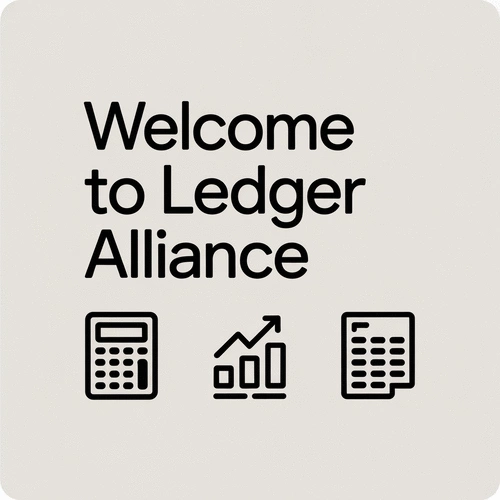As businesses navigate the complexities of workplace regulations, understanding the Fair Work Act 2025 is more crucial than ever. This legislation not only sets clear guidelines for employers but also aims to enhance protections for employees, ensuring a fair and balanced work environment.
What You Will Learn
- Employee Rights: The Act establishes minimum wage standards and clear working conditions to protect employees.
- Employer Responsibilities: It provides clarity on compliance and reporting requirements, essential for business operations.
- Dispute Resolution Processes: The legislation outlines procedures for resolving workplace conflicts, promoting a harmonious work environment.
- Right to Disconnect Policy: Employees can now disconnect from work communications after hours, enhancing work-life balance.
- Criminal Penalties for Wage Theft: Employers face serious legal consequences for failing to pay employees correctly, reinforcing the importance of compliance.
- New Family and Domestic Violence Leave Provisions: Employees can access paid leave to address issues related to domestic violence, reflecting a commitment to employee well-being.
- Enhanced Compliance for Visa Workers: New regulations ensure fair treatment and rights for all workers, regardless of their visa status.
Key Changes in Australia's Fair Work Act 2025
The Fair Work Act 2025 introduces significant updates to workplace regulations, focusing on enhancing employee protections and ensuring employer compliance. Below is a comparison of the 2009 Act and the key changes implemented in 2025, alongside details of the major new provisions. For a broader understanding of compliance in the Australian business landscape, consider reviewing our Australian SME Compliance Checklist 2025.
Fair Work Act: 2009 vs. 2025
Fair Work Act 2009
- Basic minimum wage & conditions
- Standard dispute resolution
- General anti-discrimination
Fair Work Act 2025 (Updates)
- Enhanced worker protections
- Increased non-compliance penalties
- Focus on mental health support
Key Updates in 2025
- Criminal Penalties for Wage TheftHefty fines or imprisonment for egregious violations.
- Right to Disconnect PolicyEmployees can disengage from work communications after hours.
- Enhanced Visa Worker ComplianceEnsures fair treatment and entitlements for all visa workers.
- New Domestic Violence LeavePaid leave for issues related to family and domestic violence.
Fair Work Act 2025: Key Objectives
Objective 1
Fair Work Conditions
Establishes fair minimum wages and working conditions.
Objective 2
Workplace Rights
Safeguards against unfair dismissal and discrimination.
Objective 3
Employee Engagement
Encourages participation in decision-making processes.
Understanding the Fair Work Act 2025
The Fair Work Act 2025 marks a significant evolution in Australia’s workplace relations framework. As a financial strategist, I understand how crucial it is for businesses to stay compliant with these laws. This Act is designed to ensure fair treatment of employees while also providing guidance for employers on their responsibilities.
At Ledger Alliance, we believe that understanding the Fair Work Act is vital for small to medium enterprises (SMEs). It helps create a balanced work environment that fosters growth and stability. Let’s dive into the specifics of this important legislation and its implications for business owners like you!
Overview of the Fair Work Act and Its Importance
The Fair Work Act 2025 aims to enhance protections for employees while ensuring that employers have clear guidelines to follow. This legislation is not just about compliance; it reflects a commitment to promoting fair workplace practices across Australia. With the ever-changing landscape of work, staying informed about such laws is essential. For more detailed information on maintaining compliance, explore our article on Top Compliance Tools for Small Businesses.
- Employee Rights: It ensures minimum wage standards and conditions.
- Employer Responsibilities: Provides clarity on compliance and reporting requirements.
- Dispute Resolution: Outlines processes for addressing workplace conflicts.
For small business owners, understanding these aspects can significantly improve workplace culture and productivity.

Key Objectives of the Fair Work Act 2025
The objectives of the Fair Work Act are multi-faceted, focusing on protecting employees while balancing the needs of employers. Here are a few of the main goals:
- Fair Work Conditions: Establishes fair minimum wages and working conditions.
- Workplace Rights: Safeguards against unfair dismissal and discrimination.
- Employee Engagement: Encourages participation in decision-making processes.
By aligning your business practices with these objectives, you can foster a more engaged and satisfied workforce.
Comparison with the Fair Work Act 2009
While the Fair Work Act 2025 builds upon the foundation set by the Fair Work Act 2009, it introduces new provisions that reflect the evolving workplace landscape. The 2025 updates focus more on compliance and accountability, particularly in areas such as wage theft and employee rights.
- Enhanced Protections: New measures for vulnerable workers.
- Increased Penalties: Stricter consequences for non-compliance.
- Focus on Mental Health: Emphasis on worker well-being and support systems.
Understanding these changes is crucial for anyone running a business today. At Ledger Alliance, we can help you navigate these complexities and ensure your operations remain compliant.
We Want to Hear From You!
As you navigate the complexities of the Fair Work Act 2025, what aspect do you find most challenging? Share your thoughts below:
Recent Updates and Changes in 2025
As we move through 2025, significant updates to the Fair Work Act have emerged, reshaping the landscape of workplace compliance in Australia. These changes reflect a commitment to safeguarding employee rights and adapting to modern workplace challenges. Understanding these updates is crucial for business owners like us at Ledger Alliance, as they directly impact how we manage our teams and ensure compliance. To ensure your business finances are robust enough to handle these changes, consider reading our advice on Building Your Small Business Finances.
Being aware of these updates helps us avoid potential pitfalls and reinforces our commitment to fostering a fair workplace. Let’s delve into the key changes this year!
Criminal Penalties for Wage Theft
One of the most critical updates in 2025 is the introduction of criminal penalties for wage theft. This means that employers who fail to pay their employees correctly may face serious legal consequences. Specifically, the penalties can include hefty fines or even imprisonment for egregious violations.
- What qualifies as wage theft? This includes underpayment, non-payment, or the deliberate misclassification of employees.
- Why is this important? Protecting workers' rights is fundamental, and this change sends a strong message that such practices will not be tolerated.
- How can employers prepare? Ensure all wage calculations are accurate and that payroll systems are regularly audited.
Implementing robust payroll practices can help us stay compliant while fostering trust within our teams. Remember, at Ledger Alliance, we advocate for accountability and transparency in every aspect of business operations!

Introduction of the Right to Disconnect Policy
This year also sees the implementation of the Right to Disconnect Policy, which aims to support work-life balance. Under this policy, employees have the right to disengage from work communications after hours, promoting mental well-being and reducing burnout.
- Effectively communicate expectations: Make sure your team understands when they are expected to be available.
- Establish clear boundaries: Encourage employees to set personal time away from work communications.
- Provide support: Consider offering resources that help employees manage their workloads effectively.
This policy is not just a legal requirement; it’s an opportunity to cultivate a healthier workplace culture. At Ledger Alliance, we believe that supporting our team's well-being ultimately leads to better performance!
Enhanced Visa Worker Compliance Requirements
Another significant update is the enhanced compliance requirements for employers hiring visa workers. This change aims to ensure that all workers, regardless of their visa status, are treated fairly and receive the appropriate entitlements.
- Understand the new regulations: Familiarize yourself with the legal obligations surrounding visa worker rights.
- Stay updated: Regularly check for updates from the Fair Work Commission regarding visa worker laws.
- Implement training: Train your HR staff on the compliance requirements to avoid penalties.
By ensuring our practices align with these new regulations, we reinforce our commitment to ethical employment practices at Ledger Alliance.
New Family and Domestic Violence Leave Provisions
Lastly, the introduction of new family and domestic violence leave provisions acknowledges the critical need for support in these situations. Employees can now access paid leave to deal with issues related to domestic violence, making it a pivotal aspect of workplace support.
- Inform staff: Ensure all employees are aware of these provisions and how to access them.
- Update workplace policies: Integrate these provisions into your existing leave policies for clarity.
- Provide support resources: Offer information on local support services for employees in need.
This update not only enhances worker rights but also strengthens the support systems within our workplaces. It’s a step towards creating a more compassionate work environment, which is a core value at Ledger Alliance.
Recap of Key Points
Here is a quick recap of the important points discussed in the article:
- Employee Rights: The Fair Work Act 2025 ensures minimum wage standards and conditions for all employees.
- Employer Responsibilities: Clear guidelines are provided for compliance and reporting requirements.
- Dispute Resolution: Established processes for addressing workplace conflicts enhance workplace harmony.
- Criminal Penalties for Wage Theft: Egregious violations can lead to fines or imprisonment, emphasizing the importance of accurate payroll practices.
- Right to Disconnect Policy: Supports work-life balance by allowing employees to disengage from work communications after hours.
- Enhanced Visa Worker Compliance: New regulations ensure fair treatment and appropriate entitlements for all workers, including visa holders.
- Family and Domestic Violence Leave Provisions: Employees now have access to paid leave, reflecting a commitment to support in critical situations.
Frequently Asked Questions about the Fair Work Act 2025
- Q1: What are the main objectives of the Fair Work Act 2025?
- A1: The main objectives include establishing fair minimum wages and working conditions, safeguarding against unfair dismissal and discrimination, and encouraging employee participation in decision-making processes.
- Q2: How does the Fair Work Act 2025 differ from the 2009 Act?
- A2: The 2025 Act introduces significant updates such as criminal penalties for wage theft, the Right to Disconnect Policy, enhanced compliance for visa workers, and new family and domestic violence leave provisions, focusing more on enhanced protections and accountability.
- Q3: What does the "Right to Disconnect Policy" mean for employees and employers?
- A3: The Right to Disconnect Policy allows employees to disengage from work communications after hours, promoting work-life balance and mental well-being. For employers, it means establishing clear expectations and boundaries regarding after-hours contact.
- Q4: What are the consequences for wage theft under the new Act?
- A4: Under the Fair Work Act 2025, employers who commit wage theft (underpayment, non-payment, or misclassification) may face severe legal consequences, including hefty fines and potential imprisonment for egregious violations.
- Q5: How do the new provisions support visa workers?
- A5: The enhanced visa worker compliance requirements ensure that all visa workers receive fair treatment and appropriate entitlements, regardless of their visa status, reinforcing ethical employment practices.









